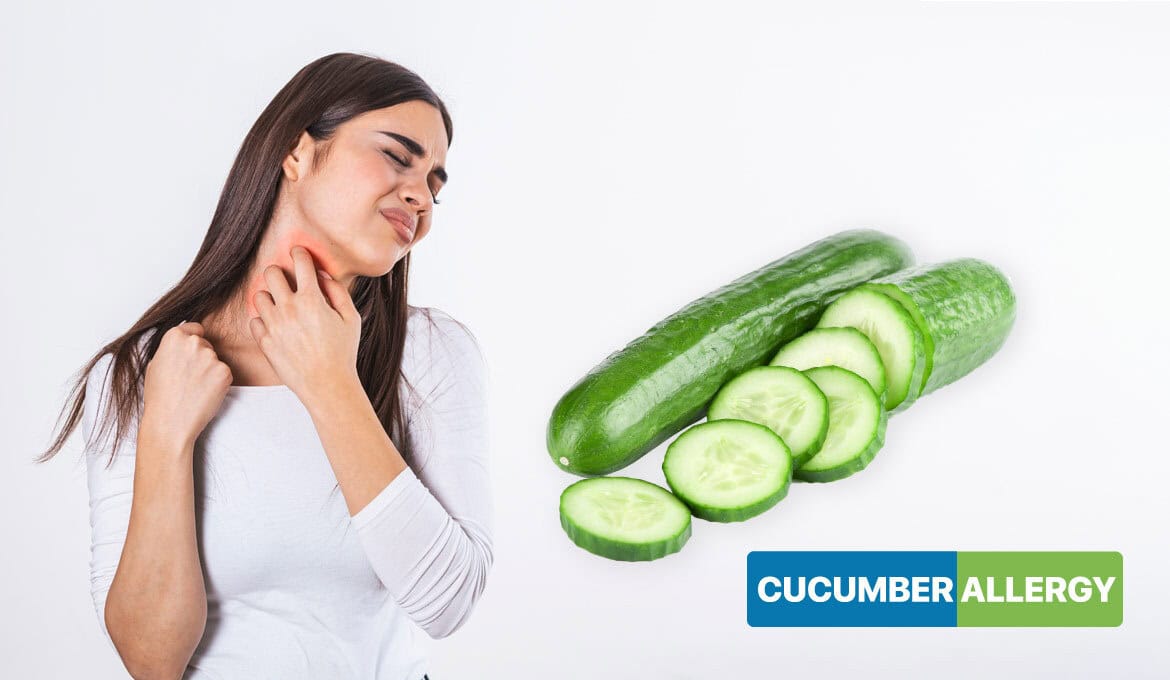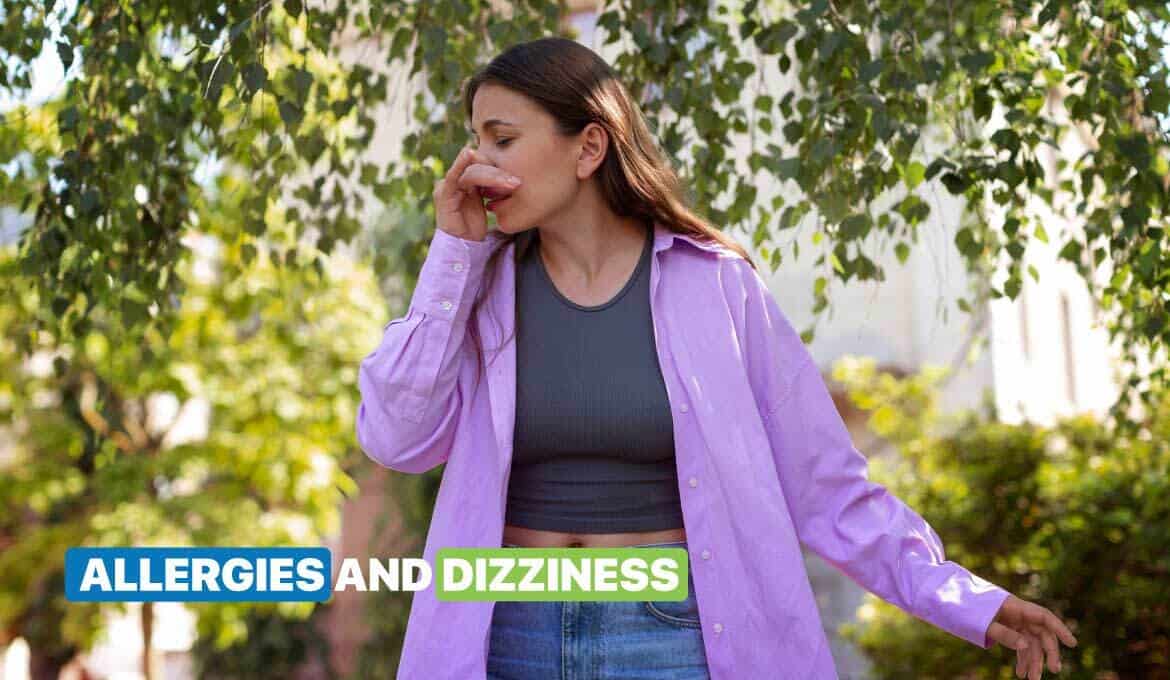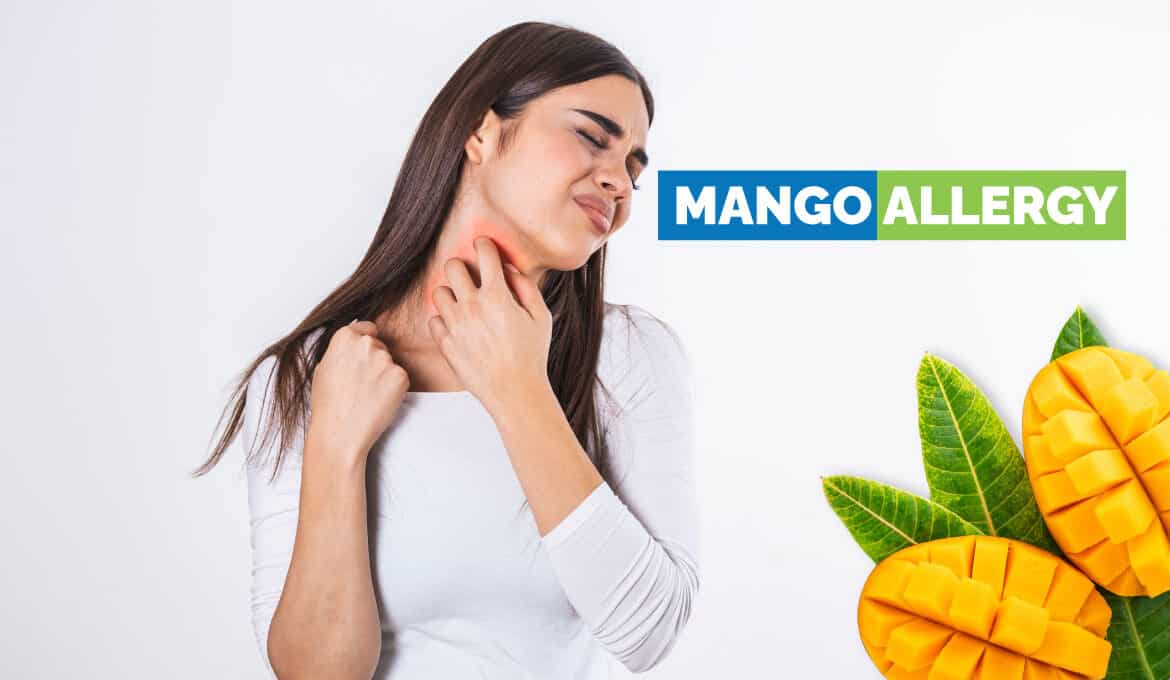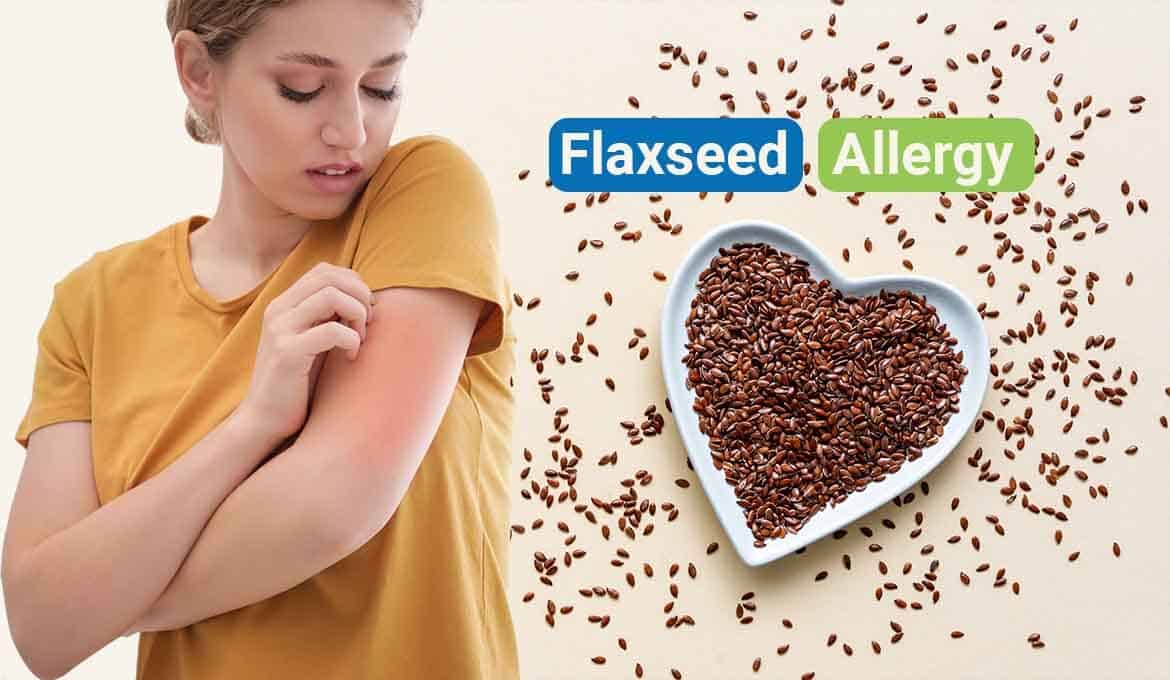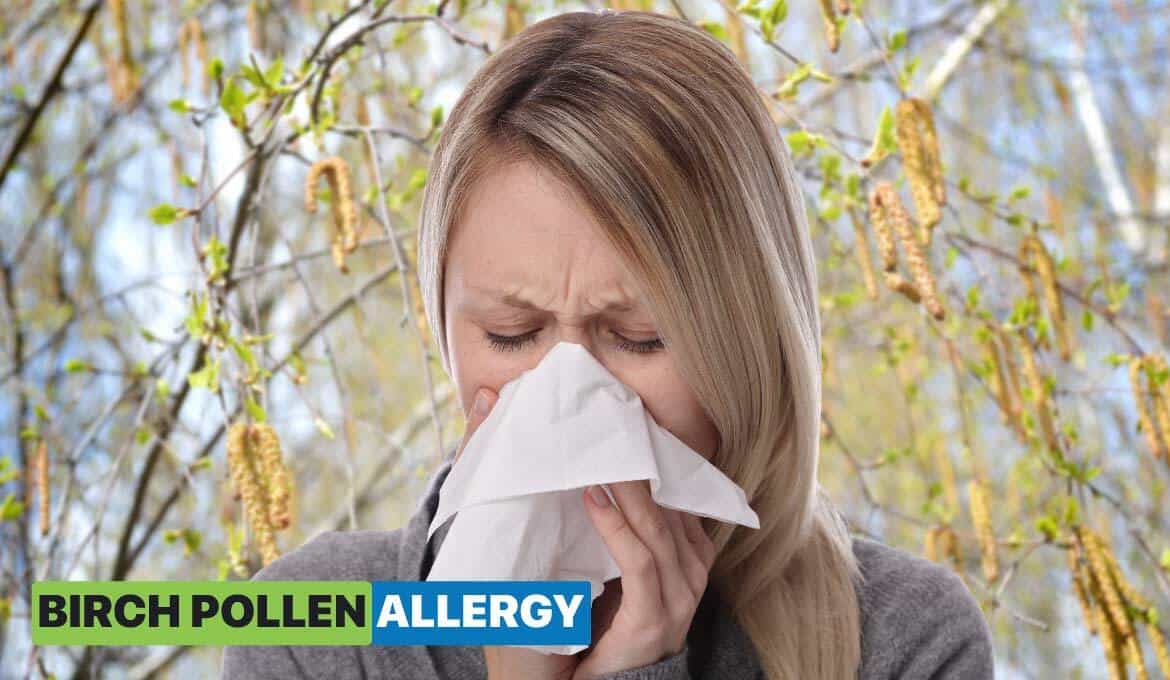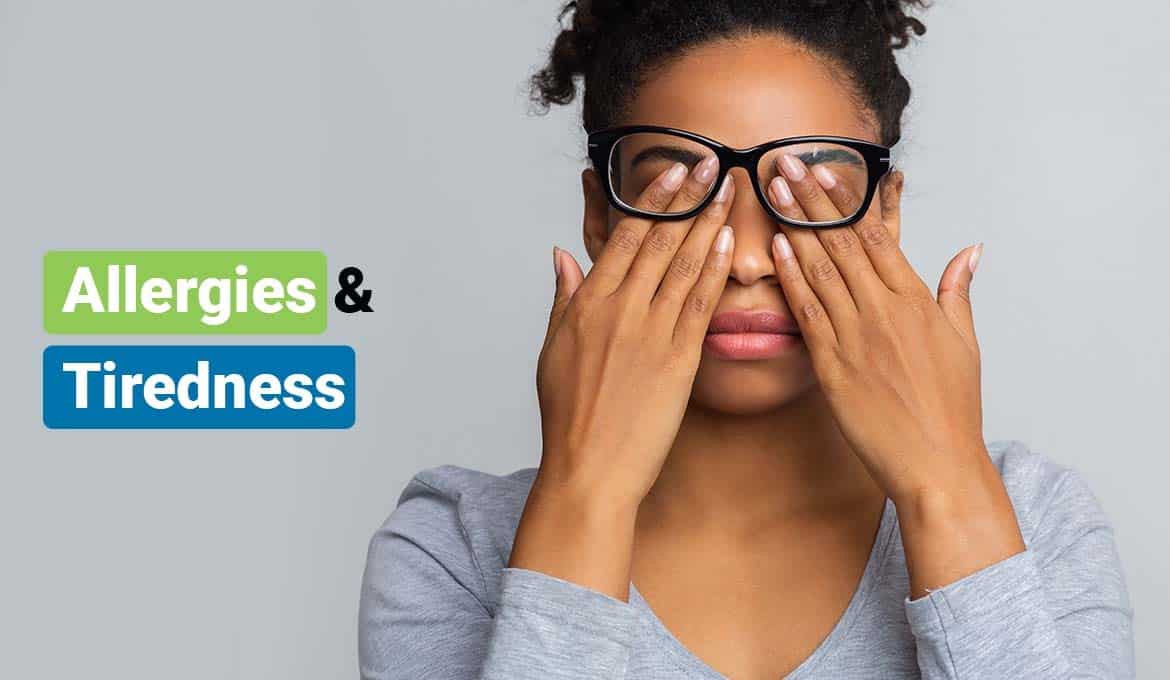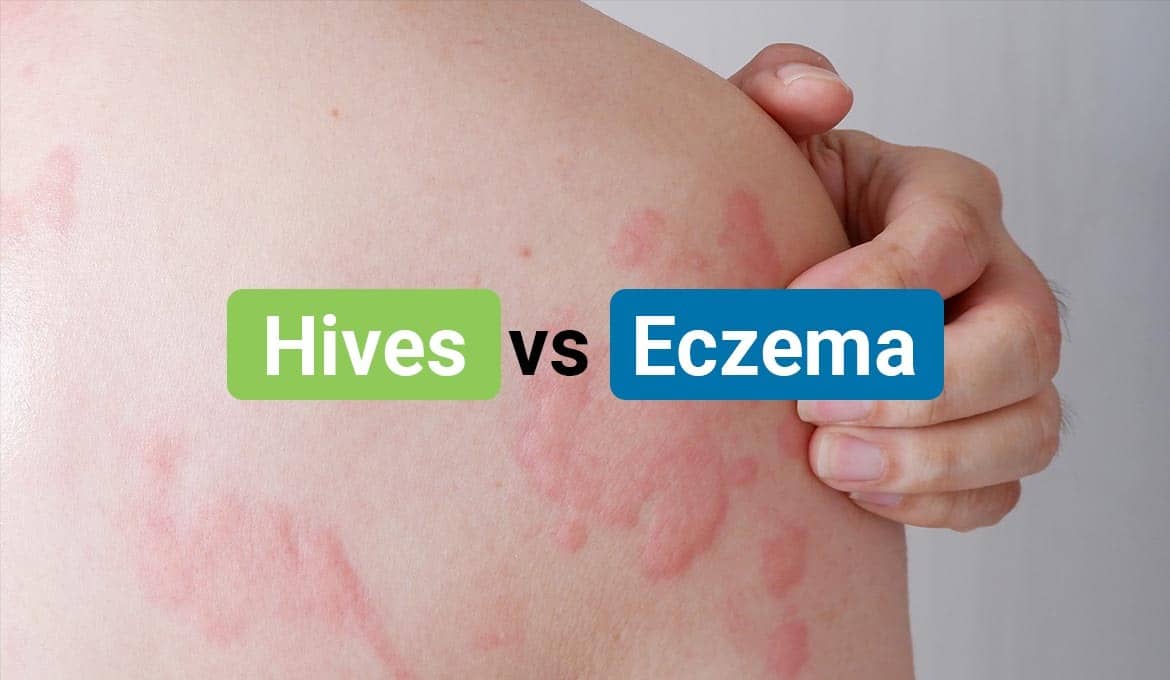
A strong mind and a healthy body can be all we need to live a long and happy life. This can be achieved by taking active steps to ensure the body's health and the mind's strength.
This could be through activities like reading and problem-solving for the mind, exercise, and a healthy diet for the body. However, one often overlooked aspect in this regard is skin health.
Besides contributing to overall well-being, having healthy skin can be a source of confidence. It can help you present yourself in a pleasing manner and, coupled with confidence, can make tackling life easier.
However, taking adequate care of the skin can be difficult as the skin is prone to several health issues of its own. The primary threat to skin health is allergic reactions caused by environmental factors and irritants, as well as by contact with allergens, resulting in conditions such as Hives and Eczema.
Hives and Eczema are skin conditions that are characterized by the formation of itchy rashes. They share similarities in certain ways but are unique skin conditions that need to be addressed differently.
Understanding the critical differences between these conditions and how to tackle them can help you take better care of your skin and manage the conditions seamlessly.
What are Hives?
Hives are skin rashes characterized by raised, itchy, red-colored bumps on the skin that may burn or sting. An allergic reaction to allergens like medications, insect bites, and food generally causes it.
It can also occur due to factors like stress, sudden change in temperature, and exposure to foreign substances. Additionally, Hives may also be caused in conjunction with other infections.
Conditions like hay fever and asthma can increase the risk of contracting Hives. When a skin reaction to Hives is triggered, it causes a release of inflammatory mediators like histamine from the mast cells that cause fluid leakage from blood vessels.
Hives can occur throughout an individual's lifetime and last between a few minutes and a few days. Hives that last longer might have a more serious underlying condition that can be determined with the help of a healthcare provider.
What is Eczema?
Eczema, also known as dermatitis, is a type of skin inflammation identified by itchy red rashes, which can lead to short-term blisters and thickened skin with time. Eczema is generally triggered by exposure to allergens, poor venous return, or both.
Conditions like allergies and sensitive skin are associated with a higher chance of Eczema. It is a chronic condition that can cause rashes as and when exposed to allergens.
Differences between Hives and Eczema
Hives and Eczema are both skin conditions characterized by rashes. However, they are distinct regarding cause, appearance, duration, etc.
You can distinguish between Hives and Eczema based on the following:
Appearance –
Hives cause rashes that are raised red bumps on the skin. Multiple such rashes can vary in size and appear in a cluster or patches.
On the other hand, Eczema is a chronic condition that causes rashes that are itchy, red, and scaly. They appear as patches on the affected skin.
Cause –
Hives are allergic reactions triggered by exposure to substances like certain foods, medications, and insect bites.
Eczema is a lifelong condition caused by genetics, immune system dysfunction, and environmental triggers.
Duration –
Hives are momentary allergic reactions that last between a few minutes and a few days. They appear as a reaction to exposure to allergens and disappear by themselves.
Eczema is a long-term condition that can last a few weeks to years unless treated with appropriate medication.
Location –
Hives are bumps that appear anywhere on the body and can sometimes move around based on allergen exposure.
Eczema tends to occur in some specific regions like the face, neck, hands, feet, and behind the knees.
Triggers –
Allergens trigger Hives and often accompany other allergic reactions like hay fever. This is due to contact with allergic substances like food, medications, and insect bites.
Conversely, Eczema is triggered by environmental factors and irritants like dry air or harsh soaps.
Similarities between Hives and Eczema
While Hives and Eczema are distinct skin conditions with unique features, certain similarities exist. They are similar in certain factors:
Allergic reaction –
Hives and Eczema can both be triggered by allergic reactions. Hives are triggered by contact with certain substances that are allergens. Certain environmental factors and irritants trigger Eczema.
Inflammation –
In both Hives and Eczema, the affected part of the skin undergoes inflammation leading to redness, swelling, and discomfort.
Itching –
Hives and Eczema can cause intense and persistent itching in the affected skin area.
Risk factors –
The ailments share similar risk factors, like a family history of allergy and asthma. Similarly, having other conditions like hay fever and wheezing can exacerbate the condition.
Stress –
In both Hives and Eczema, stress can be a pivotal factor aggravating the situation.
Causes of Hives and Eczema
Causes of Hives:
Medications –
Certain medications, like morphia dextroamphetamine, aspirin, ibuprofen, penicillin, etc., trigger allergic reactions. If you have any allergies to such medicines, they could trigger Hives upon consumption.
Food –
Some types of food, such as shellfish and nuts, are notorious for causing allergic reactions. Contact with such food could be a cause of instant Hives.
Infection –
Hives can sometimes appear due to parasitic infections like blastomycosis. Such parasitic infections under the skin can trigger reactions resulting in symptoms such as Hives.
Scratching –
A particular type of Hives, dermatographic urticaria, is triggered by scratching the skin's surface. This condition is also known as “skin writing” and can cause the appearance of Hives within minutes of rubbing or stroking on the surface.
Sustained pressure –
Sustained pressure in specific parts of the skin can cause Hives. This can be caused by pressure exerted due to tight clothes, safety gear, resting on hard surfaces, and leaning or standing for long periods. This can occur due to a cut-off in oxygenized blood supply to the pressurized part of the skin.
Stress –
Emotional factors can be a driving force in the extent of Hives aggravation and can be the core cause of cholinergic urticaria.
Cold-induced –
Exposure to extreme cold, damp, and windy conditions can cause Hives known as cold urticaria. It is a rare hereditary condition that can trigger Hives' instant formation on the face and hands.
Ultraviolet light –
A rare type of Hives, known as solar urticaria, is triggered by exposure to ultraviolet light. This rare form of Hives can make it difficult for people suffering from it to spend time outdoors under the sun.
Water –
This is another rare type of hive, known as aquagenic urticaria, triggered by contact with water. It doesn't trigger the release of histamines and is more of a sensitive reaction of the skin to certain impurities present in water. This type of Hives generally persists for only a few minutes, not extending more than two hours.
Exercise –
Exercise urticaria can be caused by increased physical activity for thirty minutes or more. It results in Hives and causes itchiness, breathing difficulty, and low blood pressure.
This type of Hive is sometimes associated with consuming certain allergic food, like shellfish, before undertaking physical activity. This is dangerous and can cause shock or even sudden death.
Causes of Eczema:
Environmental –
Theories such as the hygiene hypothesis postulate that the cause of specific allergic reactions, Eczema, and asthma developing later in life could be due to experiencing an unusually clean environment during childhood.
Exposure to mild hazards during childhood can help build immunity to more potent forms of the same hazardous substances later in life. This is, in fact, the principle behind vaccination.
Furthermore, the kind of environment during adulthood, such as the presence of dust mites in the living environment, can be responsible for the late onset of conditions like Eczema.
Malnutrition –
A deficiency of certain nutrients, especially essential fatty acids, can cause developing Eczema. Other nutrients, like zinc and biotin deficiency, can also contribute to developing dermatitis.
Urushiol –
A specific type of Eczema, known as contact dermatitis, is caused by skin exposure to urushiol. Urushiol is an oily mixture of protein allergens in certain plants and fruits.
Urshiol-induced-contact dermatitis is triggered by contact with plants or fruits that contain urushiol, such as poison oak, poison ivy, mango fruit, cashew fruit, etc.
Genetics –
Genetics plays a vital role in determining chronic Eczema among individuals. Individuals with a family history of Eczema are more prone to suffering.
Additionally, a correlation between conditions like celiac disease has been observed, and a family history of celiac disease can also increase the risk for Eczema.
Hives Vs. Eczema: Preventive Measures
Preventive measures for hives:
Avoiding triggers –
Hives are primarily triggered by exposure to certain allergens. Identifying and avoiding specific allergens is the best way to prevent Hives.
Opting for comfortable clothing –
Sustained pressure due to tight clothing can cause or aggravate Hives. Opting for loose, comfortable clothing from breathable fabrics can help counteract this.
Managing stress –
Stress has been shown to aggravate cases of Hives. Effectively managing stress can help afflicted individuals reduce the time for Hives to disappear.
Avoiding extreme temperatures –
Exposure to extreme weather can trigger Hives, such as cold urticaria and solar urticaria. It is, therefore, essential to avoid environments of extreme temperatures and to protect the body with insulating clothing.
Using antihistamines –
Having a history of Hives warrants the use of antihistamines to counter the allergic reaction. Taking antihistamines as a precaution can help prevent Hives.
Preventive measures for Eczema:
Moisturizing –
Eczema flare-ups can occur due to dry skin. Moisturizing regularly using a mild moisturizer can help keep the skin hydrated.
Avoiding irritants –
Certain irritants, like harsh soap and shampoo, can cause Eczema. Opting for milder alternatives can help avoid Eczema breakouts due to such irritants.
Opting for softer fabrics –
Breathable fabrics help keep the affected skin undisturbed, which helps avoid further inflammation or flare-ups.
Avoiding scratching –
Scratching the skin can further exacerbate Eczema. It is advisable to leave the affected areas of skin undisturbed to avoid further bouts of Eczema.
Stay hydrated –
Staying hydrated by drinking more water and using products like humidifiers can help keep skin hydrated and avoid further bouts of Eczema.
Eating a healthy diet –
Consuming a balanced meal with nutrition, especially getting adequate essential fatty acids, can help prevent developing Eczema.
Hives vs. Eczema: Treatment Options
Treatment options for Hives:
Antihistamines –
Hives are primarily caused by an allergic reaction which results in the release of histamines by the immune system. Antihistamines block the release of histamines and can prevent allergic reactions, including Hives.
Topical ointments –
Topical ointments, such as hydrocortisone cream, help relieve itching and inflammation.
Oral corticosteroids –
In severe cases, oral corticosteroids may be prescribed to counter inflammation caused due to Hives.
Cool compress –
Using a cool compress is a natural way to relieve symptoms of Eczema at home.
Treatment Options for Eczema:
Topical corticosteroids –
Topical application of certain prescription corticosteroids can help manage itching and inflammation caused due to Eczema.
Antihistamines –
Antihistamines can block the release of histamines from the immune system. This can prevent symptoms like scratching, which can further aggravate Eczema.
Topical calcineurin inhibitors –
These medications work by suppressing the immune system and treating the inflammation on the affected skin.
Immunosuppressants –
The topical application of immunosuppressants can help treat patients not tolerant of steroids. They work by suppressing the immune system and helping treat inflammation.
Conclusion
Gaining an understanding of a given ailment can help you prevent the illness from occurring and manage it efficiently if it does. Understanding the critical differences between Eczema and Hives can help you manage these similar but distinct skin conditions.
However, it is essential to consult your healthcare provider before making a conclusive diagnosis. It is also advisable to consult your healthcare provider to form the best strategy for treating these conditions.
FAQs
Q: What are Hives?
A: Hives, also known as urticaria, are itchy bumps on the skin that are usually triggered by exposure to allergens in food, medication, or other environmental factors.
Q: What is Eczema?
A: Eczema, or atopic dermatitis, is a chronic skin condition that causes dry, itchy, red, and inflamed skin. Eczema can occur anywhere on the body, but it is most commonly found on the face, neck, elbows, knees, and ankles.
Q: How do Hives and Eczema differ?
A: Hives appear as raised, itchy bumps that are usually red or pink and can last a few hours or days. Eczema appears dry, itchy, scaly, and inflamed skin that may become cracked or weepy over time and can last for months or years.
Q: What are the causes of Hives and Eczema?
A: Hives are usually caused by an allergic reaction to food, medication, or other irritants, such as insect bites or pollen. On the other hand, Eczema is generally caused by a combination of genetic and environmental factors, such as a weakened immune system, dry skin, and exposure to irritants or allergens.
Q: What are the symptoms of Hives and Eczema?
A: Hives usually cause itching, burning, or stinging sensations and may also cause swelling or redness around the affected area. Eczema generally causes dry, itchy, inflamed skin that may become scaly and thickened over time.
Q: How are Hives and Eczema treated?
A: Hives can be treated with antihistamines or other medications that reduce inflammation and relieve itching. Eczema is usually treated with moisturizers, topical corticosteroids, or other medicines that reduce inflammation and relieve itching. In some cases, Eczema may also require oral medications, such as immunosuppressants or antibiotics.
Q: What lifestyle changes can help manage Hives and Eczema?
A: For Hives, it is essential to identify and avoid triggers, reduce stress, exercise regularly, and maintain a healthy diet to boost the immune system. For Eczema, it is vital to keep the skin moisturized and avoid irritants, such as harsh soaps or detergents. Wearing loose-fitting clothing from soft, breathable fabrics can also help prevent irritation and itching.
Q: When should I see a healthcare provider for Hives or Eczema?
A: If you experience symptoms of Hives or Eczema, it is essential to consult a healthcare provider for a proper diagnosis and treatment plan. You should also seek emergency medical attention if you experience symptoms of a severe allergic reaction, such as difficulty breathing, dizziness, or a rapid heartbeat.
Read Also:





